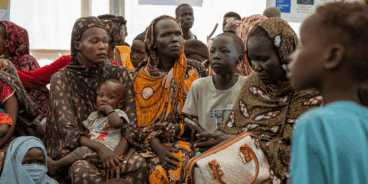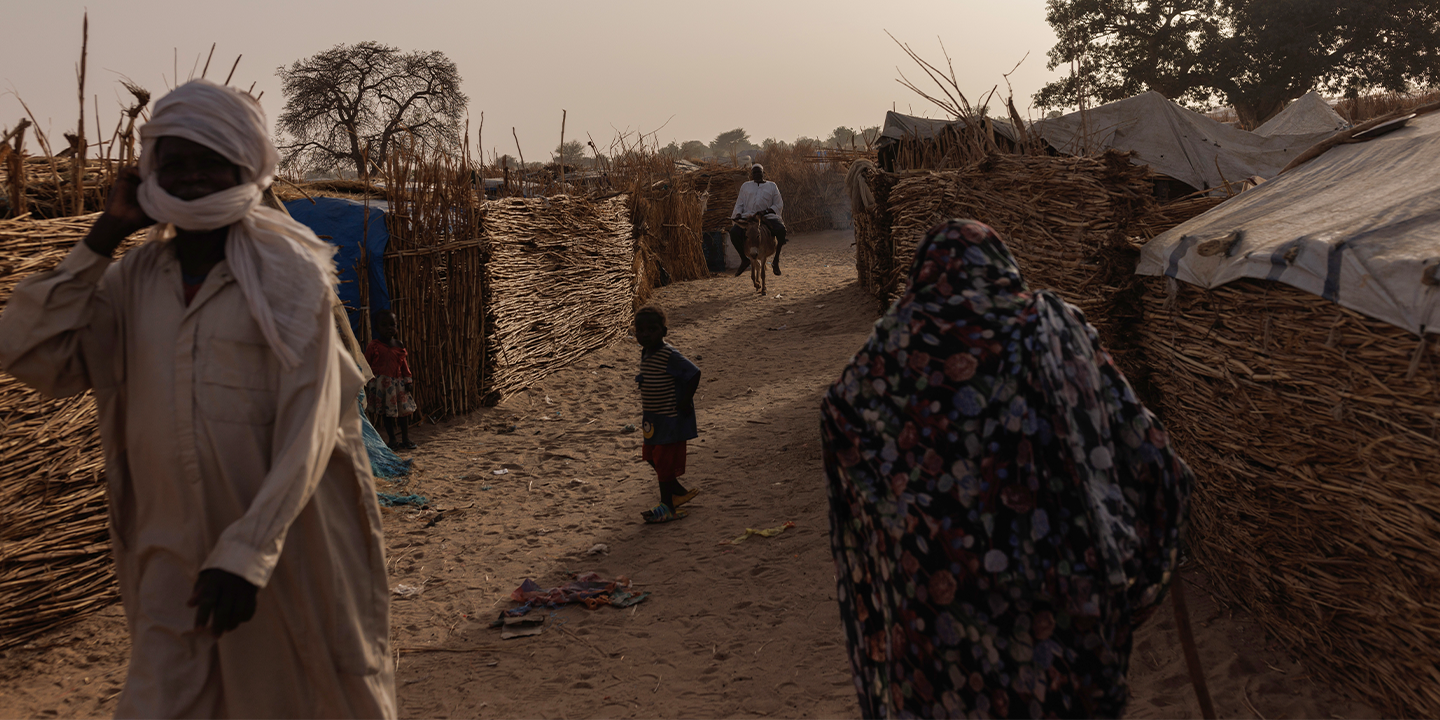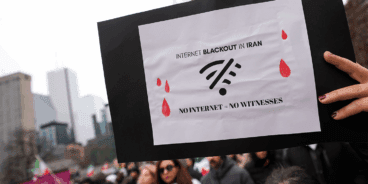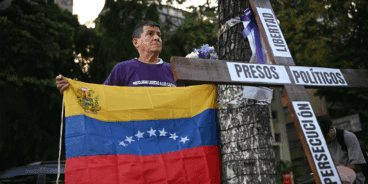

Atrocity Alert No. 458: Sudan, Israel and the Occupied Palestinian Territory and COP30
Atrocity Alert is a weekly publication by the Global Centre for the Responsibility to Protect highlighting situations where populations are at risk of, or are enduring, mass atrocity crimes.
POPULATIONS IN SUDAN CONTINUE TO FACE “CATACLYSMIC VIOLENCE” AND ATROCITIES
More than two weeks after the fall of El Fasher, civilians in and around the city remain under the control of the Rapid Support Forces (RSF) and continue to endure atrocities and targeted attacks. With communications almost completely cut off, the number of people killed remains unknown. Survivors reaching Tawila, west of El Fasher, have reported systematic executions by the RSF at berms and crossings, where men are often separated from groups before being killed or disappeared. On 7 November UN High Commissioner for Human Rights Volker Türk raised alarm over the “cataclysmic violence” in El Fasher, expressing fear that civilians trapped in the city continue to face “abominable atrocities, including summary executions, rape and ethnically motivated violence.”
The Yale School of Public Health’s Humanitarian Research Lab (HRL) reported three instances of potential body disposal visible in satellite imagery in and around El Fasher, including roadside dumping and burning objects that may be human remains at the Mellit Gate berm exit point and the Saudi Hospital, reportedly attacked on 28 October. On 6 November the HRL also reported that the RSF had closed a critical escape route through the berm from El Fasher to Garni, leaving civilians increasingly isolated.
The violence in El Fasher has heightened fears of a broader escalation across Darfur and neighboring regions. On 6 November UN Special Adviser on the Prevention of Genocide Chaloka Beyani warned of alleged atrocity crimes in Sudan, emphasizing that “once our office sounds the alarm, it signals violations that go beyond ordinary human rights abuses or breaches of international humanitarian law.” Similarly, High Commissioner Türk issued a stark warning that Kordofan could become the next target, citing developments on the ground that indicate preparations for intensified hostilities.
Despite mounting warnings, the international community has remained largely ineffective, failing to prevent the escalation or protect civilians at risk. On 14 November, following calls from civil society, the UN Human Rights Council is scheduled to hold a special session on the human rights situation in and around El Fasher and may mandate the existing Fact-Finding Mission for Sudan to conduct an urgent inquiry into recent violations and abuses of international human rights and humanitarian law.
The international community, particularly states with leverage over warring parties, must act urgently and decisively to prevent further atrocities. It is imperative that all member states comply with the UN Security Council’s arms embargo and halt the sale, supply, transfer or export of arms and related materiel of all types to any armed actor in Darfur. The RSF must be compelled to immediately stop hostilities, guarantee safe passage for civilians and humanitarian workers and ensure full, unimpeded humanitarian access to all affected areas.
UN RAISES THE ALARM ON GROWING ISRAELI STATE AND SETTLER VIOLENCE IN THE WEST BANK
On 7 November the Office of the UN High Commissioner for Human Rights (OHCHR) in the Occupied Palestinian Territory (OPT) raised alarm over escalating mass demolitions by Israeli forces in the Occupied West Bank, urging Israel to immediately halt orders to demolish 11 homes and structures in the Bedouin community of Umm Al Khair in the South Hebron Hills. OHCHR warned that these actions are “emblematic of an ever-escalating wave of Israeli steps to consolidate its annexation of the West Bank, particularly Area C, in violation of international law.” Citing the 2024 Advisory Opinion of the International Court of Justice (ICJ), OHCHR reaffirmed that Israel’s settlement expansion and punitive, discriminatory policies coerce Palestinians to leave their homes, constituting forcible transfer and a war crime.
Israel has justified demolition orders in Umm Al Khair by citing the absence of building permits, reflecting a broader Israeli policy of advancing settlement expansion and obstructing development of Bedouin villages and Palestinian communities in the Occupied West Bank under the guise of bureaucracy. In Area C, which constitutes around 60 percent of the Occupied West Bank, 95 percent of Palestinian building permit requests are rejected, with an average of fewer than 10 permits granted annually over the last two decades. Consequently, many Palestinians build without permits and are vulnerable to Israeli demolition orders, which often demand them to either demolish their own homes and structures or pay unaffordable fines. Since the start of the year, Israeli authorities have demolished over 1,200 structures in the Occupied West Bank for lack of permits, displacing at least 1,400 Palestinians and affecting some 38,000 more, according to the Norwegian Refugee Council.
Alongside these punitive state measures, Palestinians in the Occupied West Bank have faced an intense surge in attacks by illegal settlers. In October the UN Office for the Coordination of Humanitarian Affairs recorded 260 Israeli settler attacks – the highest monthly total since monitoring began in 2006 – injuring at least 140 Palestinians. More than half of the attacks targeted people attempting to harvest olives, while settlers also vandalized over 4,200 olive trees, a vital source of livelihood and an integral part of Palestinian cultural identity. UN Relief Chief, Tom Fletcher, denounced the persistent “failure to prevent or punish such attacks,” stressing that “Palestinians must be protected. Impunity cannot prevail. Perpetrators must be held accountable.”
Israel must rescind the demolition orders for Umm Al Khair and repeal its discriminatory land regulations. States must urgently intervene to protect Palestinians from forcible displacement, dispossession and settler violence. UN member states, in compliance with the ICJ’s Advisory Opinion, must ensure a rapid end to Israeli’s unlawful presence in the OPT and refrain from providing any assistance that enables its continuation.
COP30: CLIMATE CHANGE, ARMED GROUPS AND ATROCITY RISKS
From 10 to 21 November, the 30th annual Conference of the Parties to the UN Framework Convention on Climate Change (COP30) is taking place in Belém, Brazil, bringing world leaders together to address the climate crisis. COP30 is the first major climate conference since the International Court of Justice issued its landmark Advisory Opinion clarifying states’ obligations on climate change under several treaties, human rights law and customary international law. This year will also feature COP’s first-ever Justice and Human Rights Days on 12-13 November. These sessions aim to place people and rights at the center of climate discussion, advancing a human rights-based approach to mitigation, adaptation, loss and damage and climate finance.
COP30 offers an opportunity to align climate action with atrocity prevention. The worsening climate crisis is increasingly shaping patterns of conflict and violence, particularly in fragile and conflict-affected areas. Climate impacts heighten atrocity risks by undermining livelihoods, social cohesion and resilience. Armed groups of many kinds, from insurgents to criminal networks, exploit these vulnerabilities while operating outside the scope of most climate policy discussions. According to the International Committee of the Red Cross, more than 200 million people live in territories controlled by non-state armed groups – many in regions most exposed to climate shocks. In these settings, where governments are often unable or unwilling to protect civilians, climate shocks such as droughts, floods and crop failures compound existing insecurities, drive displacement and intensify competition over scarce land and resources.
Evidence from Somalia, Nigeria and the Central Sahel demonstrate how climate pressures exacerbate conflict dynamics. In Somalia, drought-displaced populations have been targeted for recruitment by al-Shabaab. In Nigeria’s Borno State, communities under armed group control face worsening food insecurity and limited humanitarian access. In the Central Sahel, climate change has sparked inter-communal conflict, triggered by disrupted agricultural production and natural resource scarcity, while localized conflicts offer fertile ground for recruitment by armed groups. Meanwhile, environmental defenders – particularly from Indigenous communities – and journalists working on climate and land issues also face growing harassment and violence, especially across the Amazon region where COP30 is taking place.
At the same time, armed actors are increasingly seizing control of critical minerals essential to the global energy transition, creating new political and security risks. Without strong oversight, competition over these resources risks deepening corruption, exploitation and instability, further elevating the potential for atrocities.
As world leaders gather in Belém, states must ensure climate policies and adaptation finance are dedicated to fragile and conflict-affected contexts. Funding should strengthen livelihoods, governance and local resilience, while protecting environmental defenders and communities affected by resource extraction. In areas controlled by non-state armed actors, supporting locally led initiatives – including sustainable livelihoods, natural resource management and conflict mediation – can help reduce recruitment and violence. States should embed human rights and atrocity prevention considerations in renewable energy and mineral projects to ensure a just transition that safeguards the rights and security of those living in conflict-affected and non-state-controlled areas.
Related Content


Atrocity Alert No. 465: Iran, Israel and the Occupied Palestinian Territory and Myanmar (Burma)
